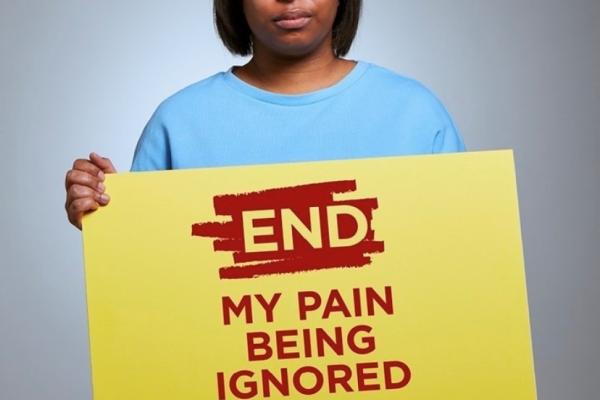Nadine was diagnosed with thoracic endometriosis in 2019. She now campaigns with Endometriosis UK to raise awareness of the disease. You can find out more about her story in the Sun here.
Could you tell us a little bit about how you were diagnosed with thoracic endometriosis, and some of the symptoms you were experiencing?
I was diagnosed with thoracic endometriosis after being admitted for planned surgery i.e. right VATS for Pleurectomy, Bullectomy, and insertion of diaphragmatic mesh. My symptoms included shortness of breath, a heaviness in the chest and abdomen, a gurgling sensation around the diaphragm, and sharp pain in the shoulder and neck.
Have you had access to the specialist support you have needed to manage your thoracic endometriosis?
Yes, I have been under the care of the Department for Thoracic Surgery and had access to them as an outpatient after diagnosis. My endometriosis centre and GP are also aware of my condition, and I am currently on Zoladex injections to help manage the symptoms as well as inhalers. In my experience, the thoracic consultants have been very knowledgeable about my thoracic endometriosis and the treatment options available.
How has thoracic endometriosis impacted your day to day life?
Unfortunately, I am not as active as I would like to be. Every time that I have a period, my breathing gets worse, and it takes at least two weeks to build up my strength again. I am very breathless if I carry heavy items, try to run, walk fast, or climb stairs. I am prone to getting coughs and chest infections and I cannot travel without my inhalers. Often, I feel older than my years because of the impact thoracic endometriosis has and this has taken a toll on my mental health. But I am fortunate to have a supportive partner, family and friends as well as an online community of endometriosis sufferers.
What advice would you give someone with suspected thoracic endometriosis, but is struggling for a diagnosis?
It can be incredibly frustrating to wait for a diagnosis especially when the symptoms are having a big impact on your life. I would encourage you to try and get your GP to refer you to an endometriosis specialist with knowledge of thoracic endometriosis or ask your gynaecologist to refer you to a respiratory department. In the past, when I have been in so much pain that I am unable to move or breath properly, I call for an ambulance and the consultant at the hospital will ensure scans are done and try to refer me to the thoracic / respiratory team within that hospital or refer me to another NHS Trust. You might feel like you are battling an invisible illness, but your symptoms are real.
Why do you think it's so important that the NICE Guidelines on endometriosis are amended, to ensure everyone with suspected thoracic endometriosis has access to the right specialist support?
The NICE Guidelines need to be amended because endometriosis is a whole body disease and there are an increasing number of people with suspected thoracic endometriosis who are having their symptoms dismissed because they are not associated with the pelvic area. Left untreated, the symptoms of thoracic endometriosis can be life threatening, as I personally have experienced. A lack of knowledge or understanding of endometriosis can put patients at risk.


